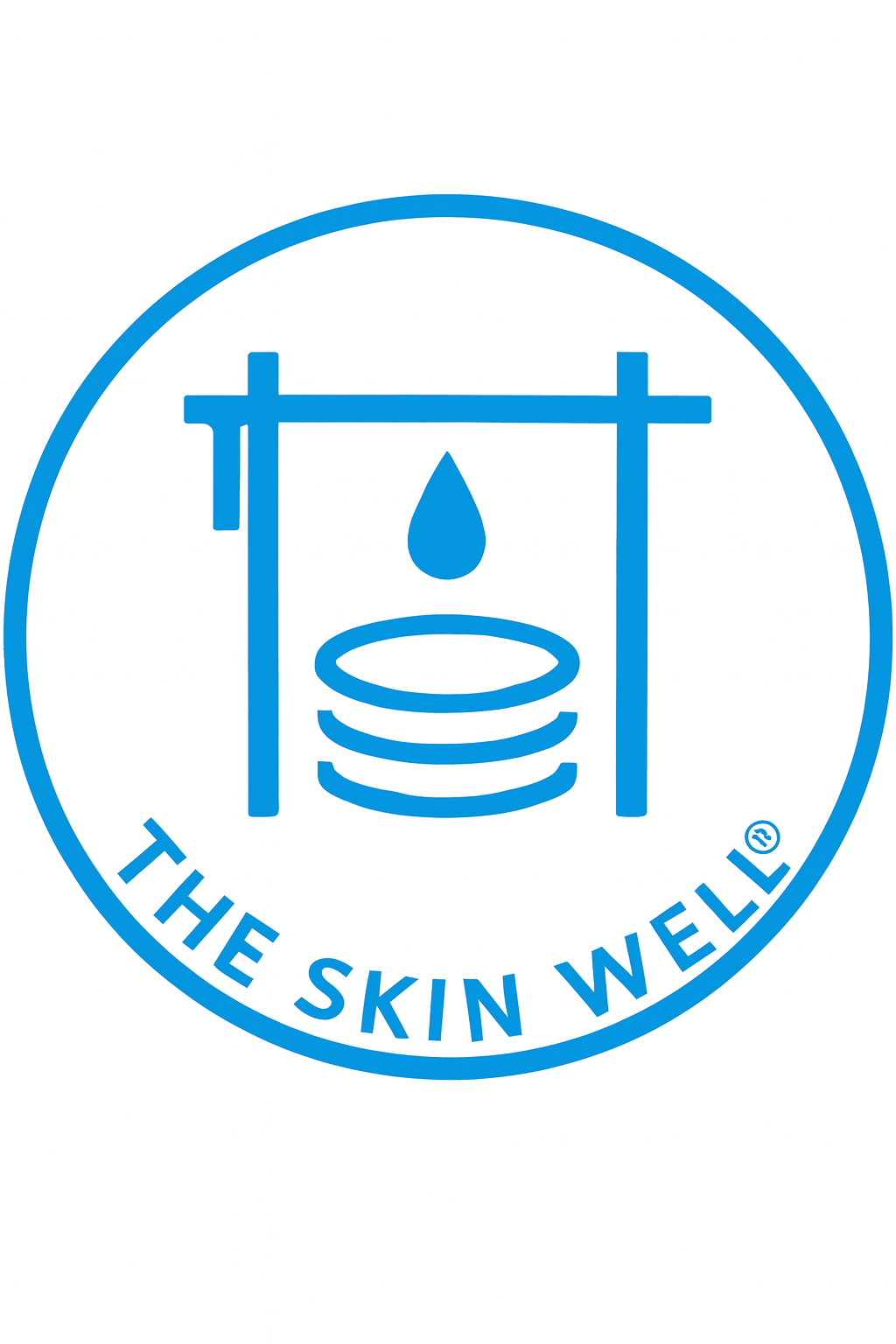From The Skin Well® | Drawn from the Happy Skin Leaflet Series
Eczema is often unpredictable—and frustrating. This checklist helps you explore possible flare-up triggers gently and without pressure. Think of it as a way to understand your skin better—not to judge it or yourself.
🧴 SKIN PRODUCTS & HABITS
☐ Switched or added new skin, body or hair products
☐ Used fragranced products, soaps, bubble bath or harsh cleansers
☐ Skipped moisturising (especially after bathing)
☐ Scratching, rubbing, or using rough/itchy fabrics
☐ Wearing tight or non-breathable clothing
What might help:
→ Keep routines gentle and fragrance-free; use an emollient as a soap substitute (NHS, British Association of Dermatologists)
→ Moisturise generously and often (at least twice daily), especially after contact with water (NHS)
→ Keep nails short; use anti-scratch strategies and cooling to reduce itch–scratch cycles (NHS)
🏠 HOME & ENVIRONMENT
☐ Exposure to dust, pets, pollen or mould
☐ Central heating, dry air, or sudden temperature changes / cold weather
☐ New cleaning products, detergents, or scented laundry softeners
☐ Recent change in environment (travel, new home, work setting)
What might help:
→ Use scent-free detergents and gentle cleaners; minimise known irritants (NHS)
→ In very dry indoor air, some people find a clean, well-maintained humidifier helpful—aim for moderate humidity (National Eczema Society)
→ Regular cleaning and dust-reduction can help when dust mites/pets/pollen are triggers (National Eczema Society – Household irritants and eczema)
🍽️ FOOD & DIGESTION
☐ Ate foods you already know link with your flares (if relevant)
☐ Big uptick in ultra-processed, sugary or salty foods lately
☐ Not drinking fluids as usual
What might help:
→ Track possible food links carefully—don’t cut major foods unless directed by a specialist (NHS Inform, RUH NHS Trust – Diet & eczema PDF)
→ Support general nutrition and hydration for overall health. If you’re not drinking enough fluids, increasing hydration may help your skin — but once you’re meeting daily needs, the real game-changer for eczema is moisturising — it’s essential for the skin barrier. (National Eczema Association)
🛏️ SLEEP, STRESS & EMOTIONS
☐ Struggling to sleep due to itching or stress
☐ Flare-up followed a period of emotional tension or anxiety
☐ Feeling unsupported or overwhelmed
What might help:
→ Prioritise wind-down time and soothing rituals; keep cool at night (National Eczema Society – Sleep and eczema)
→ Manage itch with emollients and cooling (e.g., cool packs/cloths) (NHS)
→ Explore stress-management tools such as relaxation, mindfulness, or talking with a trusted person or professional, as stress is a recognised eczema trigger (National Eczema Society)
🩺 HEALTH, IMMUNE & HORMONES
☐ Flare linked to periods, pregnancy, menopause, or illness
☐ Skin infection suspected (rapidly worsening, weeping/crusting, feeling unwell)
☐ Recently started or stopped medications (Read patient information leaflet/check with GP or pharmacist)
What might help:
→ Keep a simple flare diary to spot patterns (hormonal shifts and stress are recognised triggers) (NHS, National Eczema Society)
→ Seek medical advice promptly if infection is suspected (NHS, NHS Cheshire and Merseyside)
Note on vaccines: routine vaccinations aren’t listed by the NHS as typical eczema triggers; some people report short-term changes anecdotally. If you notice a pattern after illness or a jab, record it and discuss with your GP/dermatology team.
💡 REMEMBER
Eczema flare-ups aren’t your fault. They’re your skin asking for support. Small steps—taken consistently—can make a big difference. If your eczema is persistent, painful or worsening, speak to a medical health practitioner.
⚠️ One Final Note: Fire Safety & Fabrics
Emollients (including paraffin-free ones) can transfer to clothes/bedding and build up, making fabric ignite more easily near flames or heat. Keep away from smoking, candles and open fires; change clothing/bedding regularly and wash at high temperature (e.g., 60 °C) to reduce residue (GOV.UK, Scottish Fire & Rescue Service).
The Skin Well®
A grassroots, evidence-aware initiative supporting public skin education.
👉 @theskinwell_
Disclaimer
Whilst every effort has been made to ensure accuracy, the information in this leaflet is for educational purposes only and should not replace professional advice.
Version 1.0, September 2025
© 2025 Jacqui de Jager | The Skin Well® & The Happy Skin Clinic®
All rights reserved. This leaflet is for personal use and education only. It may not be reproduced, distributed, or adapted without written permission.
